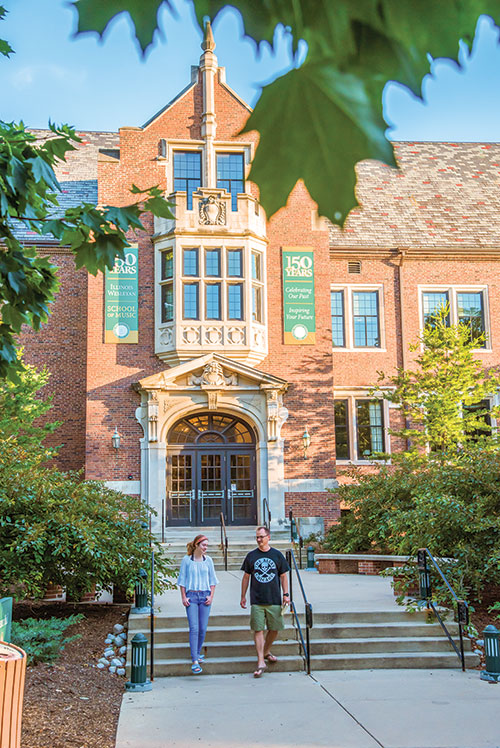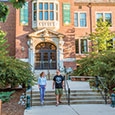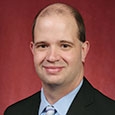Panelists
Frank Diaz, Indiana University
Lindsay Fulcher, Univ. of Northern Colorado
Rebecca MacLeod, Univ. of N.C./Greensboro
James Mick, Ithaca College
David Pope, Baldwin Wallace Conservatory
Margaret Schmidt, Arizona State University
Blair Williams, Texas Tech University
Since not every university or college employs a string music education specialist, this article focuses on high school students who want to become orchestra teachers. A panel of string music education collegiate faculty offers advice on preparing for auditions and how to make an informed decision for choosing a school that will be a good fit. The panelists are the string music education specialists at their institutions. They represent schools of various sizes from different geographic regions of the United States. While this article focuses on string music education, much of the advice is applicable to high school students interested in general, choral, and band music education.
Panelists’ Advice
What should high school students look for in a college/university music education program?
Barnes: Look for a school where the applied teacher will support your musicianship and music education aspirations. The orchestra conductor models the rehearsal techniques you will want to emulate, and the string methods professor has public school experience.
Diaz: Consider your comfort with the school’s size and mission. Some students flourish in a small liberal arts environment and others at a large research school. It is about a personal match and not the status of the school.
Fulcher: I encourage students to look for what they will be excited about beyond the school of music. It is important to have things outside of music that interest you.
MacLeod: Learn about the faculty members. Finding a university with a string music education specialist is really important if you want to become an orchestra teacher because that person will serve as your teaching mentor just as a private lesson teacher will be your performance mentor.
Mick: Consider the sequence of pedagogy and secondary instrument classes required for the degree. Some programs combine all students, regardless of music education specialty, into the same courses while other programs individualize instruction by specialty. Both models have inherent strengths and weakness, and it is a good idea to understand the various curricular models when choosing between colleges.
Pope: Look for a program where you will experience meaningful teaching opportunities in local school orchestra classrooms and a community music program. I also suggest finding a program where the string education faculty member spends time working with and supporting local school orchestra programs. This will provide you with better field experience opportunities and student teaching placements.
Schmidt: Consider the music department’s philosophy and approach. Does it focus on preparing performers or students for a variety of careers? Do music education majors study with a professor or are they typically assigned to graduate students?
Williams: Find a school where you feel like you will belong and fit in. Look for a program where you will experience diverse activities, involvement in music and educational professional organizations, and collaborative opportunities between professors, students, in-service teachers, and the community.
What is the best way for high school students to learn about music education programs?
Barnes: High school string players should contact the string education specialist at the university in which they are interested in.
Fulcher: Ask your high school orchestra director and private teacher about schools you find intriguing. Reach out to the private teachers at the colleges you find interesting.
Mick: Visit the campuses of potential schools and talk with current college students. They will always be forthcoming about their experiences. Do not be afraid to knock on a few practice room doors, introduce yourself as a prospective student, and inquire about various aspects of the school and degree program.
Pope: Take a trial lesson with the applied faculty member for your instrument, observe or participate in an orchestra rehearsal, and watch music education classes. Make sure you can envision yourself working closely with the applied teacher and music education faculty since you will build long-term professional relationships with them.
Schmidt: Read websites and learn to read between the lines. If you find a program that looks interesting, contact the music education faculty member and studio instructor that you want to work with. Ask questions and notice how they reply (or if they reply) to your questions. Compare responses from the different schools you are interested in.
Is there a trait that best indicates success for an incoming music education student?
Barnes: They should look for opportunities even if they might seem somewhat intimidating or out of their comfort zone.
Diaz: I look for resilience and drive.
Fulcher: Willingness to admit there are things they do not know coupled with a willingness to learn those new things are important qualities.
MacLeod: There is no magic formula. Some of my students are outgoing, while others are shy. Both types can be great teachers.
Pope: Students who are determined, do not give up, and do not take a tough day personally are the most successful. Students who can get up after a difficult day, dust themselves off, reflect on their lesson, and adapt their teaching methods succeed.
Schmidt: A high GPA and the ability to sightread and sight-sing, as well as good preparation on their primary instrument, are strong indicators of potential success.
What personal characteristics and dispositions do you look for in potential music education students?
Barnes: I look for a desire to work hard and the ability to keep an organized schedule. There is a lot to fit in: rehearsals, classes, practicing, and practicum experiences.
Diaz: You need passion, thoughtfulness, and a sense of care for others. Teaching is a people profession, and it is difficult to succeed. You need a sense of drive and mission to get you through the inevitable bumps.
MacLeod: I look for people who are curious and willing to consider multiple perspectives. Students who demonstrate a sense of service also seem to do well as educators.
Mick: Music education faculty often look at the social abilities of prospective students. They want to see a passion for teaching that manifests itself via clear verbal communication, eye contact, engagement in conversation, and an ability to articulate thoughts.

What musical characteristics do you look for in potential music education students?
Barnes: They should demonstrate excellent fundamentals such as a good setup, solid intonation, the ability to adjust pitch, and an awareness of rhythm.
Diaz: General musicianship is more important to me than technical proficiency. We can build technical proficiency and other competencies in college, but general musicianship is harder to develop if students do not have it when they arrive.
Fulcher: I want to see potential and a willingness to learn. Often in auditions, our faculty members give feedback about a performance and ask students to play the passage again in a different way to see how they respond.
MacLeod: I look for a strong sense of pitch and pulse. Technical skills are easier to teach than those foundational skills.
Pope: I seek musically creative students with strong performance skills on their primary instrument. I find that successful orchestra teachers are those who use ingenuity and musicality to turn mundane lessons and rehearsals into engaging activities that inspire their students to learn.
Williams: They should show melodic and harmonic sensitivity, expressivity, an awareness of technical considerations, and an understanding of how to break down individual skills when practicing.
What teaching experiences should applicants pursue in high school as preparation?
Barnes: In my experience, students with prior teaching experience are the most committed when they begin their college program. I suggest teaching lessons to younger orchestra students who feed into their high school program.
Diaz: Lead a sectional, babysit, or mentor another student in your section. As long as you are teaching, the kind of experience is less important.
Fulcher: You do not have to have any teaching experience, but it will help you know whether music education is the right path for you.
Pope: Get involved in your school’s orchestra program and music department. Learn to work well in both a leadership and supporter role. The ability to cooperate with, listen to, and understand other peoples’ needs is paramount to becoming a successful teacher and leader.
Schmidt: Ideal experiences include teaching private lessons, tutoring less experienced students, and taking on other leadership opportunities such as ensemble officer, working with groups of children, teaching Bible school, or volunteering at a day care center.
What teaching and rehearsal skills should students develop in high school?
Diaz: Two pedagogical areas which students seem to struggle with are modeling and teaching through successive approximations. By modeling, I mean the ability to isolate and demonstrate fundamentals of good technique and tone production as an enhancement to or in place of verbal instruction. Beginning teachers often talk too much when a simple and targeted demonstration would be more effective. With respect to successive approximations, students should begin exploring how to break down complex skills (e.g. shifting, spiccato, and vibrato) into manageable steps.
Fulcher: Develop the ability to critically listen to and watch an ensemble simultaneously. Even if you cannot identify the exact error yet, the ability to analyze a performance and process that “something’s not quite right” feeling is the first step toward improving the ensemble.
Mick: Work on your delivery of instructions. How you say something is often more important than what you say. A good delivery can make your instructions more effective.
Schmidt: Learn the basics of conducting and how to read an orchestral score. Ask your director to help you understand an orchestral score and how to prepare for conducting a piece in rehearsal.
Williams: Collaborate with your teachers to learn how lesson and rehearsal plans are created.
What advice would you give to high school students preparing for an entrance interview?
Diaz: Know who you are and what you are passionate about. I look for students who seem driven to teach. Background and talent are less important for me.
MacLeod: I value prospective students who dress professionally, make eye contact, seem friendly, and are articulate. Those general social skills go a long way in demonstrating a person’s future ability to engage students and parents.
Mick: Be yourself. Let your personality shine. There is not much preparation that you can do besides having an articulate answer to why you want to study music education. Otherwise, music education faculty are looking for you to demonstrate the ability to connect with students via an engaging personality.
Pope: Arrive prepared for your interview. If the program provides a list of interview questions, make sure you prepare thoughtful and articulate answers. Just as you prepare for the playing component of your audition day, practice your interview skills with adults prior to the on-campus interview.
Williams: Prepare to speak about why you want to teach, your goals as a future teacher, the string music education opportunities you intend to seek out as a student, and how you see your involvement in the local music education community.
How important are a student’s performance skills during the audition process?
Barnes: Students need to demonstrate a level of competency on their instrument. While not impossible, it is rare for a student to have a successful audition who has not taken private lessons. Seek out as many professional teachers and music opportunities as possible to improve your skills.
Fulcher: A student’s playing abilities are incredibly important. You are going to serve as a musical model for future generations, and I need to know you can fill that role.
MacLeod: I personally value students who focus on becoming the best performer that they can. However, many great teachers come from various backgrounds, and some of the best string teachers I have ever observed play something other than a string instrument.
Mick: Performance faculty who audition students on their primary instrument often control if a student is accepted into the music program regardless of degree track. Sometimes the best players are not accepted into a studio simply because the lesson teacher may not see the partnership as a good fit. If possible, I highly suggest taking a lesson with the applied faculty prior to your audition.
Schmidt: For me, well-rounded musicianship is sometimes more important than the advanced skill on a primary instrument. For our string faculty, good basic skills such as solid intonation, beautiful tone, and evidence of expressive musicianship are more important than the difficulty of the performed repertoire.
What performance skills should potential music education majors focus on to grow as a musician?
Diaz: It is critical to practice slowly with a tuner and metronome while focusing on intonation, rhythm, and producing a beautiful and relaxed sound. Without these basic skills, it is difficult for faculty members to assess your true potential as a musician.
Fulcher: Beyond the fundamentals, faculty members want to hear an expressive performance with dynamics, vibrato, phrasing, and bow control. We want to see that you go deeper than the black dots on the page. I am willing to forgive a few out- of-tune notes if a student performs with musicality.
Mick: Learn how to perform in contrasting styles. Versatile players who understand and can accurately perform Baroque, Classical, Romantic, and contemporary music with the correct characteristics are on their way to becoming complete musicians.
Schmidt: It is important to master common bowings such as détaché, staccato, marcato, and the various kinds of spiccato and legato.
Williams: Learn how to practice efficiently and effectively by assessing your performances and applying different strategies to improve problem areas.
What qualities make an applicant stand out?
Diaz: I notice students with curiosity, thoughtfulness, and a sense of artistry.
MacLeod: Previous teaching experience with groups and the ability to articulate ideas about teaching and how to help students stand out.
Mick: I am always drawn to students who demonstrate passion for music education, excellent communication skills, organization, and attention to detail.
Schmidt: I look for students with a variety of musical experiences and the ability to clearly articulate their interest in music education as a career.
Williams: Applicants stand out when they are confident, well-spoken, and can provide specific answers with examples from their own teaching and musical experiences without seeming nervous speaking to adults. Aim to have a conversation.
Is there any additional advice you want provide to potential music education students?
Barnes: If you love music and like working with other people, I can think of no better career. You may not get rich, but you can (with good choices) be financially comfortable. You will find something to be entertained about almost every day of your life.
Diaz: Listen to a lot of music and participate in varied musical activities. Be broad in your thinking and practice teaching as much as possible. Learn a secondary instrument to expand your possibilities and to get that sense of being a beginner again. Figure out what and why you are passionate about teaching and music, and practice articulating this to everyone – friends, teachers, others.
Fulcher: This is a very challenging degree that prepares you for a very challenging profession. However, it is also incredibly rewarding. Making music, and helping others to make music, is an awesome way to spend each day. Remember the faculty is there to support you. If you are struggling with something – ask for help. College is the start of being on your own, but you are not totally there yet. Utilize the safety net while you have it.
Mick: Teaching is an amazing career. Music may be the method that we use to reach students, but ultimately, a master teacher will connect with students in meaningful ways regardless of the medium. Accordingly, focus on becoming the best person you can be.
Pope: You have an amazing opportunity as an orchestra teacher to positively affect thousands of students over your career. While the music was the medium, it is not what inspired me love my career as a middle and high school orchestra teacher. It was my students. I do not think of the musical moments when I think about my former students. I think of the laughter, trips, stories, and interactions where I watched them grow up and become good and caring people.
Schmidt: Start the process early and actively ask for help if needed. If you can, visit schools during your junior year. Ask to meet with music education faculty and have a sample lesson with the studio professor. Notice how you are treated and get a feel for the vibe of the place. Determine whether you feel comfortable at the school.
Williams: Join us in one of the best professions in the world. Inspire the next generation of musicians and educators. Seek out guidance and help from your high school directors and local music teachers first. Do your research, visit campuses, meet faculty, and find the school and program that is the best fit for you.
Conclusion
I am hopeful the panel’s guidance will help high school directors advise their students about pursuing a career in music education. Students interested in pursuing this degree should start building their resumes with leadership and teaching experiences that will both prepare them for a future career in music education and help them stand out during the application process.
In addition, with the shortage of string teachers in the United States, exploring these ideas and opportunities with students may inspire some who are not currently considering a career in music education to contemplate the possibility. Teaching music is a rewarding profession that allows educators to have a lasting and positive influence on their students, school, and community. High school students may find an unexpected passion for teaching once they start exploring opportunities that exists in the music education profession.






